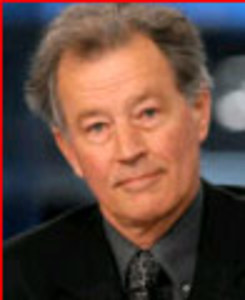 Jane Jacobs died five years ago on Monday. She will be remembered for her matchless contribution to cities and urban development throughout the world, but particularly to the two cities she called home, Toronto and New York.
Jane Jacobs died five years ago on Monday. She will be remembered for her matchless contribution to cities and urban development throughout the world, but particularly to the two cities she called home, Toronto and New York.
What is less remembered - and sometimes belittled - is her work on nations, national sovereignty, and the relationship between cities and the development of nations. Yet her third and fourth books dealt specifically with these issues. The Question of Separatism (1980) and Cities and the Wealth of Nations (1984) were published in the wake of her two seminal books on cities, The Death and Life of Great American Cities (1961) and The Economy of Cities (1968), and after she moved to Toronto.
Nagging questions remain five years after her death? Why has the work of a leading thinker and Canadian citizen on the unfolding story of nations received so little attention? Why is the only book she wrote about her adopted country never discussed? And why, unlike her other six books, was it out of print for more than 25 years? How is it that 35 experts could put together a 400-page anthology about Jane Jacobs, What we see, Advancing the observations of Jane Jacobs in 2010, without even mentioning her book The Question of Separatism?
Jacobs answered these questions in part in a 2005 interview. She pointedly broke with her policy of refusing interviews because the subject was to be The Question of Separatism, Quebec and the Struggle over Sovereignty, 25 years after the book appeared.
When asked if the media ever talked to her about it, she replied, "No. Practically never. You're the first." To explain the silence she added: "Don't want to think about it . or engage in talking pros and cons and why people feel this way. It's an unwelcome subject ( .) It was fear that there would be no more identity for Canada, that it would disintegrate if Quebec were to separate. It was foolish because there are so many examples of separatism, and nothing has disintegrated, unless they went to war. Yet there were over 30 of these cases in very recent times since the issue of Quebec was raised in 1980."
As in her other books, Jane Jacobs brought to bear her renowned capacity to observe and analyze the real world, avoided ideology and slogans, and set forth practical win-win solutions. Using examples, particularly that of Norway and Sweden, she discussed the timeless issues that influence - or afflict - debate on separatism in the world, such as emotion, national size and paradoxes of size, duality and federation, and the relationship between competing urban centres.
Jacobs posited that large regional cities and the nations they drive require a degree of political sovereignty to develop successfully, failing which they become "passive and provincial," relegated to the shadow of a dominant city region. That is what she quite accurately predicted about Montreal and Toronto, a result of what she described as the "gathering force" of national centralization. She added that the desire for Quebec sovereignty was not about to disappear, unless of course Montrealers and Quebecers as a whole were ready to resign themselves to being a satellite of the Golden Horseshoe area.
Ever the pragmatist, Jane Jacobs explained in the book and in the 2005 interview how, from a trade and development standpoint, both parties stood to gain from a new arrangement respecting the Quebec people's will for sovereignty.
The actors have changed since 1980 but the script remains the same. Quebec will likely return a majority of Bloc Québécois members to Parliament as it has for the past 18 years.
This stalemate would not have surprised Jane Jacobs, who stood firmly behind her 1980 conclusions. Asked in 2005 if she would write the same book again, she smiled confidently, "Yes, not because it is in my head, but because that's the way it is in the world, and it still holds."
Let's hope that five years after her death, the world will learn as much from her work on nations as it has from her work on cities.























Laissez un commentaire Votre adresse courriel ne sera pas publiée.
Veuillez vous connecter afin de laisser un commentaire.
Aucun commentaire trouvé